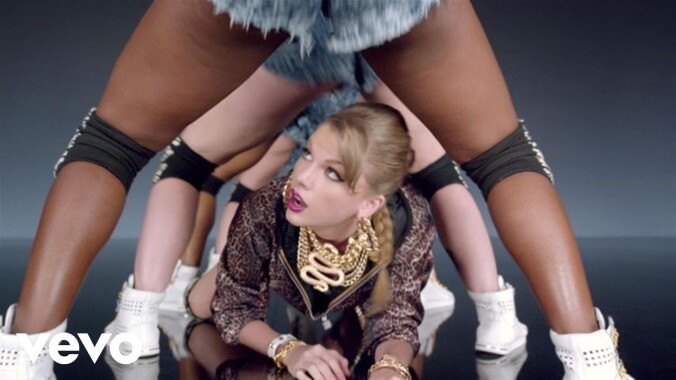This Taylor Swift "Shake It Off" lawsuit is getting into some deep philosophical shit

Last September, we reported that Taylor Swift was being drawn back into court yet again, this time over the lyrics to her 2014 smash hit “Shake It Off.” The lawsuit in question came from songwriters Sean Hall and Nathan Butler, who claimed that Swift ripped off the lyrics to 3LW’s “Playas Gon’ Play”—which they wrote—with “Shake It Off”’s chorus, which posits that players gonna play, play, play, play, play, and haters gonna hate, hate, hate, hate, hate, as is their custom.
Today, Swift’s own attorneys asked a judge to dismiss the suit, a pretty standard opening gambit in this type of legal wrangling. Where things get interesting, though, are in the actual arguments her attorneys are making to prove their point, which get weirdly in-depth into philosophical concepts like playing, hating, and the meaning of language itself. Specifically, Swift’s people are arguing that it’s impossible for Hall and Butler to have copyrighted lyrical concepts like “playas gonna play” and “haters gonna hate,” because the very existence of said playas and haters implies that there’s playing and hating to be done. (It is, indeed, what they’re gonna do.) Thus, per the motion, “Plaintiffs’ claim to being the only ones in the world who can refer to players playing and haters hating is frivolous…Providing a copyright monopoly in the phrase would prevent others from sharing the idea that players play and haters hate.” (A tautological crime, if ever there was one.)
The authors of the request went so far as to cite several instances of those who hate and those who play in popular music, including references to Fleetwood Mac’s “Dreams”—“Players only love you when they’re playing”—and Notorious B.I.G.’s “Playa Hater,” which threatens to send this whole enterprise tumbling to its ontological foundations with its suggestion of crossing the Playing and Hating streams.
The judge has yet to rule on the motion to dismiss, possibly because they’re some sort of hater or something.